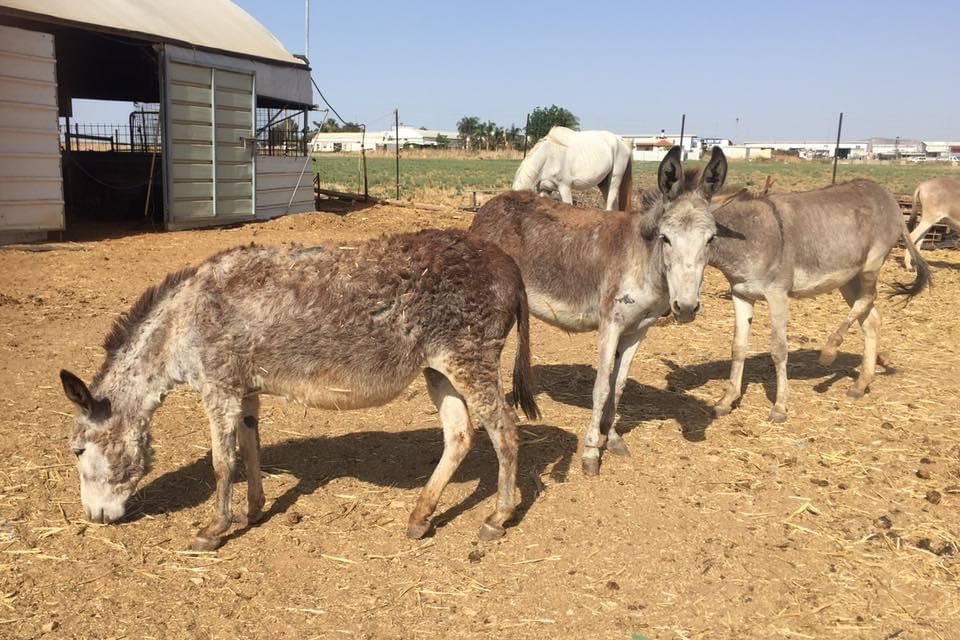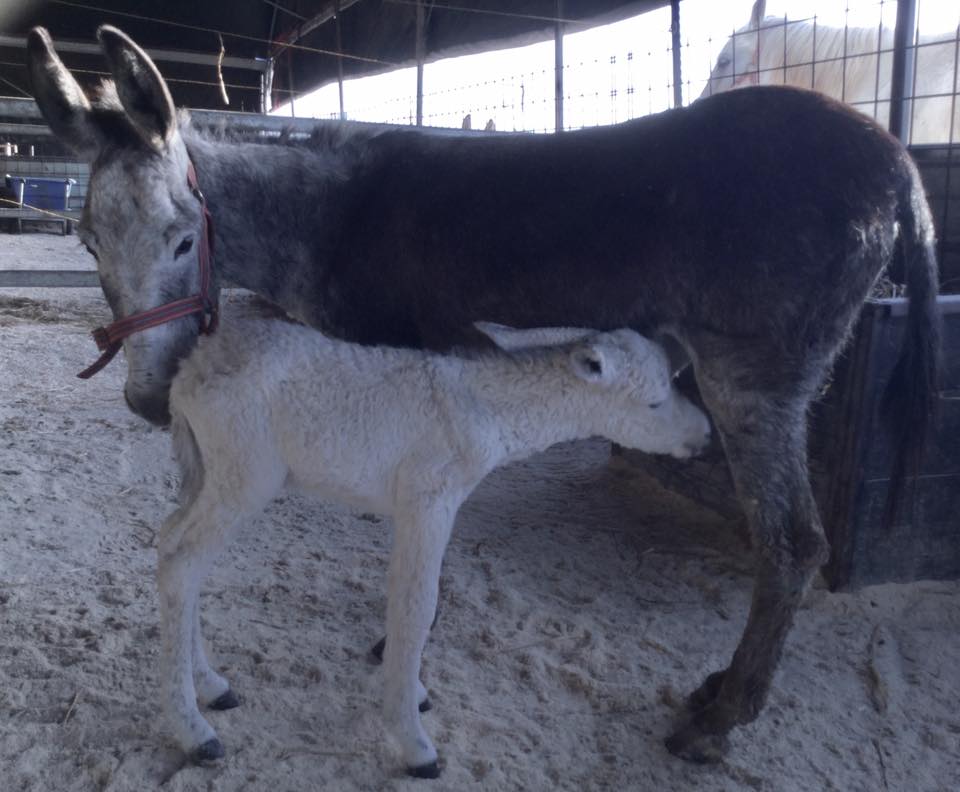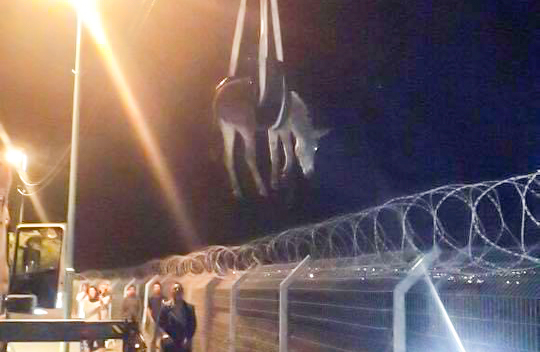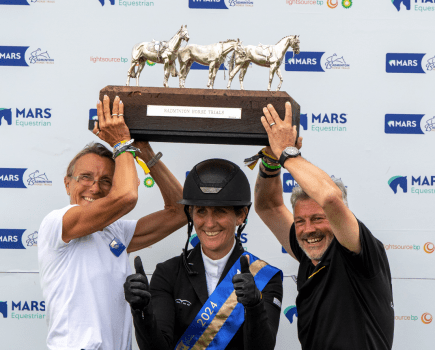A crane was used to rescue a donkey from the Palestinian West Bank after she suffered horrific leg and hoof injuries that left her struggling to walk.
The injured jenny, later named Apples, had wounds around her fetlock and hoof caused by hobbling.
Hobbling is the act of loosely tying an animal’s front legs together in order to restrict movement and prevent it wandering off.
However, Apples’ rope had pulled too tight and eaten into her flesh, resulting in deep lacerations.
Her companion, Carrots, caught the attention of a local woman and her daughter from Oranit, a settlement on the Israeli side of the border, with her loud braying.

Apples and Carrots have a home for life at the sanctuary
The woman contacted local authorities and a crane was organised to lift Apples over the perimeter fence, as she was too weak to walk to the village.
The operation to move Apples took place at night, as it was crucial for her to receive veterinary attention as quickly as possible.
An official from the Ministry of Agriculture collected Apples for treatment, while Carrots was taken by Lucy and her husband Adi, who run Lucy’s UK Donkey Foundation, to their sanctuary.
The charity rescues abandoned, injured or surrendered donkeys in Israel and Palestine. They also provide mobile veterinary care, and educate owners on how to care for their donkeys.
Lucy managed to contact the Ministry official who had taken Apples and organised to collect her. She was then reunited with Carrots at the sanctuary.
Apples proceeded to receive daily treatment for her wounds and has made a full recovery.
“Sadly, hobbling can be a very common cause of injury,” said Erika Winpenny, who manages the sanctuary’s digital media. “Often owners tie their donkeys up overnight next to their settlements.”
Prior to their rescue, both Apples and Carrots, who are thought to be nine or 10 years old, were working donkeys.
“It’s a difficult situation, because on one hand all you want is for that little donkey to get to safety, receive treatment and experience kindness,” continued Erika. “But the solution is not always to confiscate donkeys, because owners can just go and get another one and so the cycle goes on.

Apples nursing Angelo
“That’s why we also try to keep teaching people a different way, but it’s hard to make the changes we strive for.”
Now reunited at the sanctuary, Apples and Carrots are described as “happy to have found one another again”, and share a special bond.
Unknown at the time, Apples was pregnant when rescued and she has since given birth to a healthy foal named Angelo at Lucy’s sanctuary.
To find out more about Lucy’s UK Donkey Foundation, the work the charity does and to make a donation, visit the website and follow the Facebook page.








